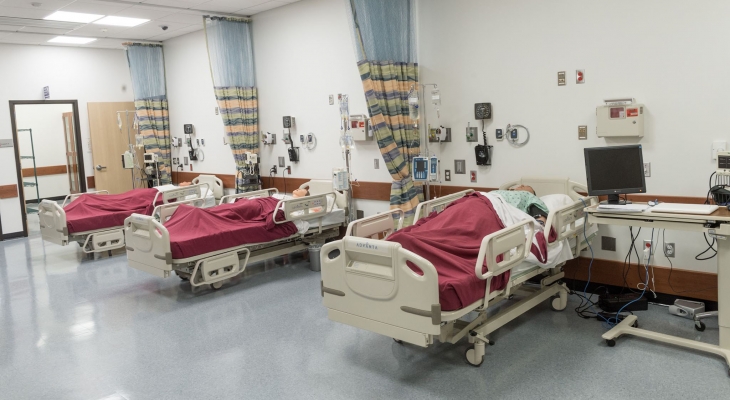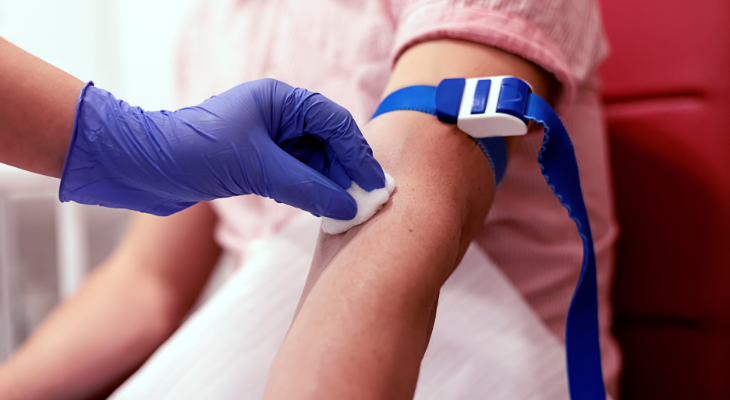
Nursing Program Information Session
College Reports, ICCB Reports (State), IPEDS Feedback (Federal)
Below are links to interactive dashboards illustrating Joliet Junior College data. Within each dashboard clicking on graphs will allow you to highlight specific data points. If you have questions about our dashboards or how to use them, please contact the Office of Institutional Research and Effectiveness at OIRE@jjc.edu.
APU/PR Course Success Rates
Application Yield for Spring Terms
Certificates and Degrees Awarded
Fall 2023 Census with Trends
Fall-to-Fall Retention Rates
Fall-to-Spring Persistence Rates
Fiscal Year 2023 JJC Employees
Spring 2019 Census Dashboard with Trends
Grade Distributions
Course Success Rates by Fiscal Year
End Date Enrollment - Credit and Dual Credit
The following reports represent enrollment data collected at the end of the regular registration period.
Joliet Junior College operations supported approximately $128.7 million in economic output for the region in Fiscal Year 2020, according to a new statewide report. Findings also attributed more than 1,400 jobs to JJC within its seven-county service district.
The Economic Impact Study is a collaboration between the Illinois Community College Board (ICCB) and Northern Illinois University (NIU) Center for Governmental Studies (CGS). Its research found the Illinois community college system collectively accounts for $3.5 billion in economic output.
JJC currently uses Personal Assessment of the College Environment (PACE) to gauge the college climate.
The scope of the environmental scan is to provide projections about demographics and workforce trends in the Joliet Junior College District for 2025-2029. The report breaks down the demographic composition of the JJC district in terms of race/ethnicity, age, gender, geographic distributions of students, educational attainment, and labor market trends including labor force participation and occupational sector changes.
The Fact Book provides easy access to commonly asked questions about Joliet Junior College. It contains thirteen sections: General Information, Demographic & Labor Force Trends, Tuition & Fees, Applicants, Fall Enrollment, Spring Enrollment, Summer Enrollment, Annual Enrollment, Persistence/Retention, Graduates/Completers, Cohort Graduation & Transfer Rates, and Grade Distributions.
Fact Book 2021 (PDF)
Fact Book 2020 (PDF)
Fact Book 2015 (PDF)
Joliet Junior College is the nation's first public community college. The district straddles seven counties covering a 1,442 square mile area and serves a population of nearly 210,000 households and about 735,000 residents.
JJC has 180+ degree and certificate programs with daytime, evening, weekend and on-line course offerings. JJC courses are designed to prepare students for college, transfer to a 4-year institution, or to step right into the workforce.
The purpose of general education is to develop individuals who have sensitivity for and an understanding of the world around them. Students must understand the implications of global interdependence and solve unscripted problems to thrive in our knowledge-based economy. A comprehensive general education will help students develop moral values, critical thinking skills and investigative queries that will prepare them well for a rapidly changing world.
JJC has identified and assesses the following general education objectives:
Students develop these skills and habits of mind through many college courses in addition to the ones designated as general education requirements.
The Student Learning Committee regularly updates the faculty icampus (JJC's school management system) page. This page contains meeting summaries and all tracking data for collegewide GEO efforts.
For all information about General Education Objectives email GenEdAssessment@jjc.edu.
The Community College Survey of Student Engagement (CCSSE) and the Survey of Entering Student Engagement (SENSE) provide information on student engagement, a key indicator of learning, and therefore, of the quality of community colleges. The surveys, administered to community college students, asks questions that assess institutional practices and student behaviors that are correlated highly with student learning and student retention.
The Community College Faculty Survey of Student Engagement (CCFSSE) elicits information from faculty about their teaching practices, the ways they spend their professional time, both in and out of class, and their perceptions regarding students' educational experiences.
Special Reports
2023 Results
2022 Results
2021 Results
2020 Results
2019 Results
2017 Results
2015 Results
2010 Results
2009 Results
2008 Results
2007 Results
2023 Results
2021 Results
2018 Results
2016 Results
2014 Results
2023 Results
2019 Results
The VFA is the principle accountability framework for community colleges with measures defined to encompass the full breadth of the community college mission and the diversity of students' goals and educational experiences.
The Illinois Community College Board (ICCB) collects information from all Illinois community colleges and provides an annual Data Book with comparisons.
IPEDS is the Integrated Postsecondary Education Data System of the US Department of Education. IPEDS reporting is required of all institutions. Please refer to the following link for an overview of the system: IPEDS overview. The IPEDS Feedback Report is intended to provide institutions a context for examining the data submitted to IPEDS.

